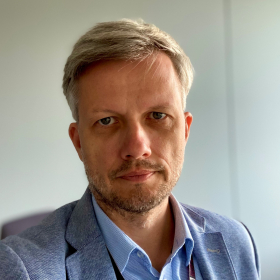

Jakub, European Commission
“My name is Jakub and I work at the European Commission’s Directorate General for Mobility and Transport. I am a deputy Head of Unit responsible for inter-institutional relations, planning and programming and coordinating response to crisis – such as COVID-19 pandemic or Russia’s war of aggression against Ukraine. I am economist by education and before joining the Commission, I worked for the Polish administration on Poland’s accession to the EU.
What I cherish most at my current position is the variety of tasks and skills I need to be successful, the fantastic work atmosphere, as well as the high quality of work we are expected to deliver. What I find quite unique about the Commission is that, if you want, you can easily change your job, while preserving your position and pay. In the past, I enjoyed working for the Directorate General for Environment, the Secretariat General, the Office of the Commissioner for Climate Action, and the Office of the Commission President, and at each of these places I learned something new.
Brussels is a great place to be. It is of much more human scale than the bigger EU capitals, and it still offers plenty of top-notch cultural events. It also makes it easy to meet new people and to make new friends.”
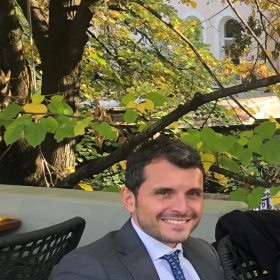
Giovanni (DG HOME)
"My first visit to Brussels was as a university student, when I realised that this would be a great place to work in an international context and contribute to advancing European integration.
After starting my career in the European Commission in the Directorate General for Employment and Social Affairs, I moved to Home Affairs 9 years ago.
I have worked on different files related to migration and security, including a two-year deployment in Italy dealing with the migration crisis. I have dealt with both operational and policy files. There is great diversity of tasks and files you deal with in DG HOME, so it never gets boring.
Working in Home Affairs in the European Commission gives you the opportunity to deal with subjects that are under the spotlight of politics and public opinion, directly related to the welfare and security of our societies.
I have been living in Brussels for 13 years now, it is my second home, a diverse and multicultural city, where it is easy to connect with people."
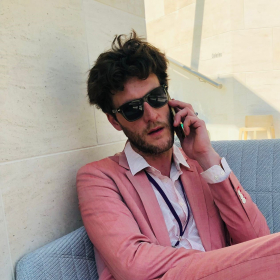
Pieter, Council of the E
“I have been working for the European institutions for more than 10 years and I have not regretted a single day. It was my dream to work for the institutions, since I was 16. I must say, it turned out even better than what I imagined at 16. For me, not a single day has been the same. And every day has been great. The job has offered me a lot of satisfaction. You find challenges to resolve. You get opportunities to learn new skills. All this in a multi-cultural environment. I find it amazing to work with people from all over Europe and in a multi-lingual environment.”
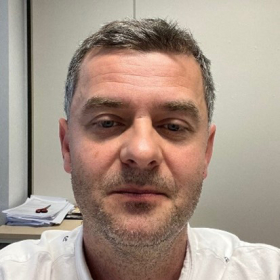
Victor (Council of the EU)
“What I like about my job is the exposure to the most interesting topics concerning the economy and financial markets in the EU and beyond.
I joined the Council in 2017 to work in the Financial Services Unit, dealing mostly with banking legislation. Then this year, I moved to my current unit. I provide support to the Presidency in preparing for discussions on specific topics at the Economic and Financial Affairs Council, especially in relation to Russia’s aggression against Ukraine and the coordination of working parties aimed at identifying ways to support Ukraine’s reconstruction. The work is demanding because ECOFIN ministers meet almost every month and Ukraine is always high on their agenda, but it is also wide-ranging and interesting.”
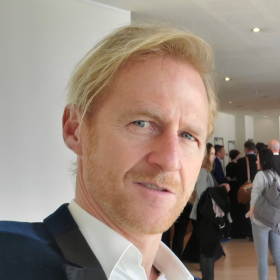
Gerald (European Economic and Social Committee)
“I am working since 2008 for the European Economic and Social Committee (EESC), for the Section for Economic and Monetary Union and Economic and Social Cohesion. In 2016, I passed a specialised EPSO competition for financial economics, and became an appointed official. My fields of work are on financial and capital markets and the budget of the European Union, but also issues related to strategic foresight.
In my job I work closely with the members of the EESC, that represent organised civil society, and that feed with their expertise into the EU´s policy making process. I give input in the process of drawing up opinions, organise hearings and conferences, and write speeches. It is of paramount importance to stay up to date to policy developments. To this end, I liaise closely with colleagues from the European Commission, but also with Parliament, think tanks, and civil society interest groups. I enjoy working in a multicultural working environment, with highly competent and interesting colleagues in my unit and the organisation. My job gives me insight to a range of topical policy matters that fit with my educational background.”

Susanne (Council of the EU)
"Being a policy officer in the field of migration fully corresponds to what has been my main subject of interest ever since I studied refugee law at university. Gaining hands-on experience from both the Danish Immigration Service and UNHCR and witnessing a real refugee crisis in 1996-97 certainly gave me an insight I have used a lot since I started in the migration team in the Council Secretariat back in 2015, right at the beginning of a refugee crisis in Europe. It is also tough to do this line of work because you deal with a policy that affects many thousands of people directly every day and there are no easy solutions."
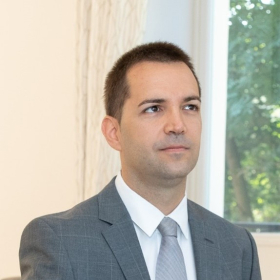
Aimar (Council of the EU)
“Working in the Budget and Cohesion Unit in the General Secretariat of the Council is not all about crazy Excel tables and getting caught up in figures. It is actually a very exciting policy post! People may think that budgetary affairs are boring, but the opposite is true. We work in a very political environment where the real priorities of the EU get decided: where the EU spends the money is what really matters, and we are right at the heart of that interesting and (sometimes) exhilarating decision-making process!”
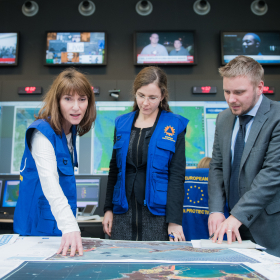
Maria (European Commission)
"My name is Maria and I am Spanish, from Madrid. I have lived in Brussels for the last 20 years and I have to say that I have very much enjoyed it since the start. Brussels is a not so big, but it is very cosmopolitan, which suits me very well. In the streets, you overhear so many languages and see so many different types of people, which strangely makes me feel at home.
Having a background as a lawyer, I have been working in DG ECHO since 2008. DG ECHO deals with Humanitarian Aid and Civil Protection. Specifically, since 2016 I have been working in the directorate dealing with emergencies, first in the European Emergency Response Center (ERCC) and now dealing with the European Humanitarian Response Capacities (EHRC).
The ERCC helps to coordinate a coherent EU response to major disasters occurring inside and outside the EU: earthquakes, conflicts, cyclones, floods, etc. The unit provides a platform for coordination within the EU institutions and Member States. The Center also has a 24/7 duty system that coordinates with partners like the UN, international organizations, NGOs and other crises centers in the EU and the world.
Concretely, now I work as a Team Leader in the EHRC which designs, follows, and monitors DG ECHO's directly implemented operations outside the EU, especially after emergencies: transport of humanitarian cargo, passengers, establishment of warehouses for partners, regular routes for inaccessible areas in central Africa, emergency expertise, etc.
Unfortunately, there are too many crises in the world, but what I really like about my job is that I can bring my contribution whenever disasters strike vulnerable populations, partially fighting the feeling of helplessness that we all have before them.
If you feel this itch and like to work in an international environment, I encourage you to join us. It is also a very dynamic environment, with many dedicated colleagues driven by a shared passion to bring European solidarity to those in need. Good and committed professionals have plenty opportunities to grow, travel, live abroad while doing a fulfilling job at the European institutions."
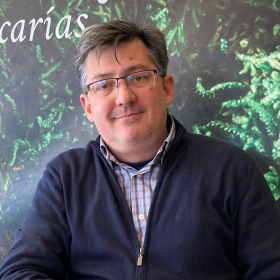
Nestor (Joint Research Center)
“I am currently leading a team of economists providing scientific support for digital policy initiatives. Working for the European Commission has been so far an incredible experience, both personally and professionally. From a professional perspective, it has been a real challenging intellectual journey, facing difficult requests that require a combination of analytical and problem-solving skills. However, even if these are relevant, it is necessary to complement them with soft skills such as collaboration, teamwork, communication and resilience. Personally, I’ve had the opportunity to meet some of the most interesting people I have ever met: intelligent, responsible, caring, amusing… All that in a multicultural environment where you can learn and enjoy every day, while you contribute to the greater good. Can you imagine a better place to work?”
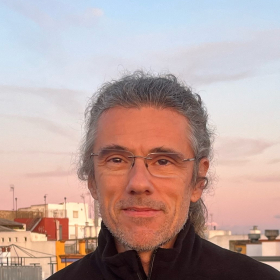
Fidel (Joint Research Centre)
“I have been working in the Joint Research Centre (JRC) in Seville for almost eight years. Currently I coordinate the maintenance and update of EUROMOD, a model that allows estimating the impact on households of reforms of taxes and benefits in EU Member States. Although I started as a contract agent, two years ago I managed to pass an AD6 competition and, very luckily, continue working on my previous project.
Before coming to the Commission, I was an associate professor in the University of Vigo (Galicia, Spain). Although I liked my work, I always felt the need of working closer to the policy world, and the JRC represented a unique opportunity to work at the crossroads of research and policy-making.”
